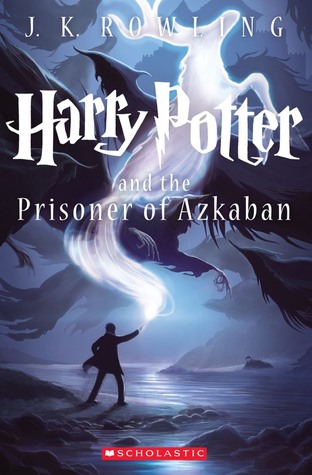 Continuing my Harry Potter re-read, I've come to Harry Potter and the Prisoner of Azkaban, which is apparently the most popular book in the series. This has never really made sense to me. I think it's because people absolutely love Remus Lupin (he is pretty cool) and adore Sirius Black (which, I mean, he's not bad, but really?). But even re-reading this, with knowledge of the whole series in my head, I couldn't get past the feeling that, once we get to the beginning of the climactic events, the story feels very cobbled together and everything just goes on for way too long.
Continuing my Harry Potter re-read, I've come to Harry Potter and the Prisoner of Azkaban, which is apparently the most popular book in the series. This has never really made sense to me. I think it's because people absolutely love Remus Lupin (he is pretty cool) and adore Sirius Black (which, I mean, he's not bad, but really?). But even re-reading this, with knowledge of the whole series in my head, I couldn't get past the feeling that, once we get to the beginning of the climactic events, the story feels very cobbled together and everything just goes on for way too long.This is, of course, the story of Harry's third year at school and it's also the only book of the series where there is not some sort of direct confrontation with Lord Voldemort or his minions! (Peter Pettigrew doesn't really DO anything in this book and so I am convinced he does not count.) After a confrontation that involves him unwillingly using magic, Harry runs away from the Dursleys and, through a roundabout series of events, ends up spending the rest of his summer at the Leaky Cauldron where he eventually finds out that an escaped convict from Azkaban Prison is probably out to kill him. This rather puts a damper on the start of the school year, but Harry promises to not go looking for Sirius Black, because why would he? Well, of course he's eventually goaded into doing stupid things, and also gets caught up in some rather random events involving time-travel and a couple of different varieties of shapeshifters.
While many people love this book, I think it has more problems than the others in the series. Part of it is that Rowling essentially wrote herself into a corner--if your characters can time-travel to solve problems, what's keeping them from doing that to solve things for the rest of the series? She does try to set limits on it, but clearly recognized that this was something that was not sustainable long-term, as she tried to correct it in the fifth book by destroying the devices used to ravel through time. Except, apparently, one that pops up in Harry Potter and the Cursed Child but let's not get into that because it's kind of widely acknowledged to be a train wreck in comparison to the main series. My other two problems with this book is that it falls victim to a long info-dump of exposition right in the middle of some climactic events while the group is at the Shrieking Shack, with everyone going on and on about what's really going on when it kind of seems like they should be, I don't know, doing something about it. And then there's the thing about the climax itself just going on way too long. It basically starts with the group going off to the Shrieking Shack and lasts basically until the very end, which is a decent portion of the book. Keeping suspense going that long, especially with a big info-dumping monologue in the middle of it, is hard, and I don't think Rowling really managed it well.
Honestly, to me, this book has always felt like the one that was most "off in the weeds" and didn't seem like Rowling had a really good idea of where she wanted to go with the series plot as a whole in it. Things like the Weasley twins not noticing that the Marauder's Map showed there was a guy named Peter Pettigrew hanging out in their brother's bed for several years come across as big plot holes that just weren't thought out, and the whole thing felt more cobbled together than the other volumes in the series. Professor Lupin is obviously a big draw here, but Sirius Black doesn't honestly have a big enough role to appeal to me and clearly is not qualified as a guardian for Harry so I don't know why people always tout him as such. (Honestly, Hagrid is a far better father figure for Harry than Sirius ever is. Sirius' appeal to Harry is entirely built up in Harry's own head rather than being based on anything concrete.)
This is probably my least-favorite book in the series, after Harry Potter and the Order of the Phoenix, though we'll have to see if that changes after my OotP re-read.
3 stars out of 5.
No comments:
Post a Comment